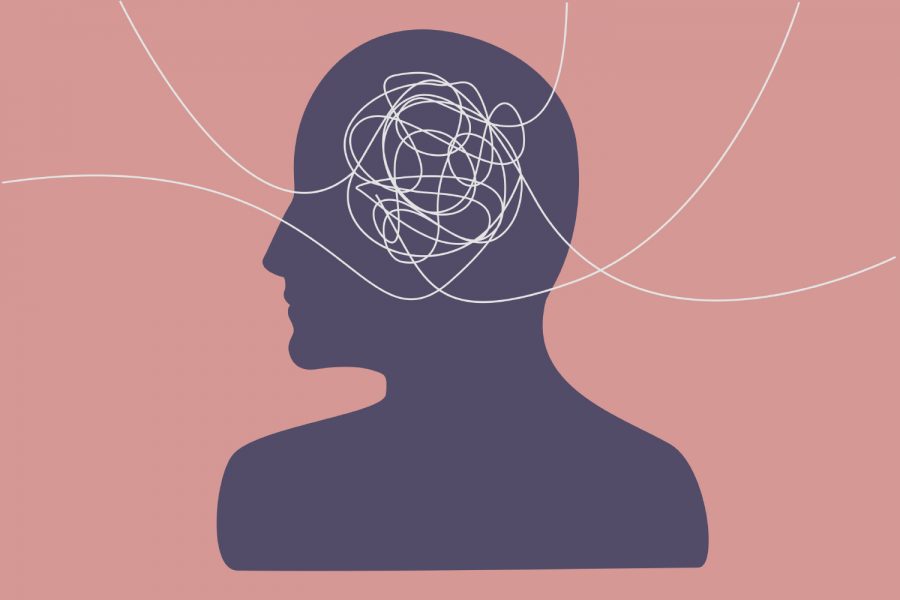Opinion | Black populations need better mental health resources
The lack of access to mental health services for communities of color in Iowa needs to be addressed, especially given the amount of police brutality we have been witnessing.
Tangled thoughts, information overload concept. Several lines from different directions that tangle in a person’s head, flat illustration.
April 20, 2021
The past year has been traumatic enough for communities of color across the country. The start of Derek Chauvin’s trial at the end of March was in and of itself taxing to watch as a Black person, and every day there are new instances of police brutality all over social media. We need to be looking out for the mental health of our communities of color.
In general, we are lacking as a country in mental health services, especially for the Black populations. Black adults in the U.S. are over 10 percent more likely to experience mental health challenges than white adults, yet they are over 10 percent less likely to receive treatment.
Across the board, Iowa has been flailing to provide adequate mental health services. There is an incredibly steep shortage in the number of available beds for mental health crisis, with only 2 beds per 100,000 Iowans available.
In addition to the lack of beds available at psychiatric centers, the lack of mental health resources available has contributed to mass incarceration, with an estimated three-tenths of the inmates in Black Hawk county having underlying mental health illnesses that should not have led to incarceration.
It is incredibly pertinent, with the amount of trauma Black and Brown populations have witnessed through police brutality, that we address the mental health needs of these communities.
Recently, there have been efforts made to bring mental health services to Black populations in Iowa. Breanna Ward opened up a consulting company that offers services specifically for things like trauma related to immigration, race, microaggressions, and more. At the University of Iowa, support spaces have opened for Black students, including a Black Student Support Group that met this fall.
In providing mental health services, it is important to acknowledge the ways that identity affects a person’s mental health experience. This is incredibly important on a college campus where students are dealing with a plethora of barriers and stressors that have only been getting worse.
A survey taken last year indicated 3 in 5 college students face high levels of anxiety. Furthermore, Black students are much less likely to receive support when it comes to mental health challenges.
Research taken of multiple universities revealed that around 40 percent of Black college students exhibit mental health problems, however only 21 percent receive a diagnosis, compared to 48 percent of white students. Very clearly, we need to be addressing these disparities in access to mental health care for Black and Brown populations.
Although these issues require systemic change that won’t happen overnight, there are things the University of Iowa can do to better support its students of color. We need more than emails saying the university stands in solidarity with its students and staff of color.
There should be resources catered to the experiences of underrepresented populations on campus, for example, therapy centered around trauma related to race, gender identity, immigration, and more.
With students and staff already facing incredibly high levels of burnout, the university needs to do a better job of addressing the needs of underrepresented populations on campus and implement mental health services specific to the experiences of communities of color.
It should not always be on the shoulders of students of color to create safe healing spaces to help cope with deteriorating mental health due to the oppression they face and witness. The university needs to do its part in advocating for their minority populations.
Columns reflect the opinions of the authors and are not necessarily those of the Editorial Board, The Daily Iowan, or other organizations in which the author may be involved.














